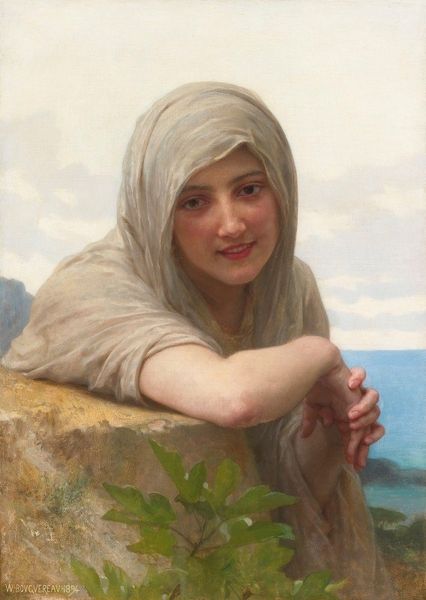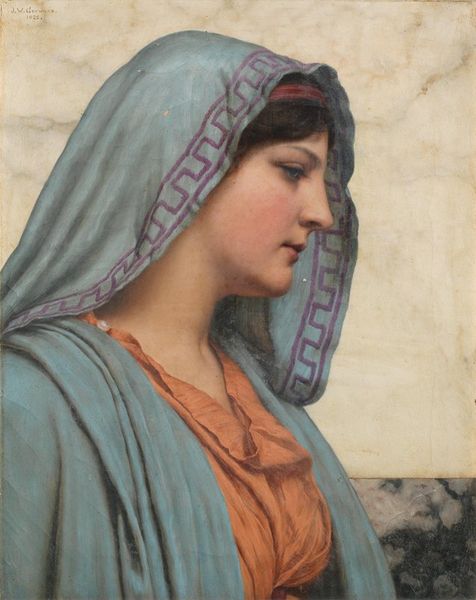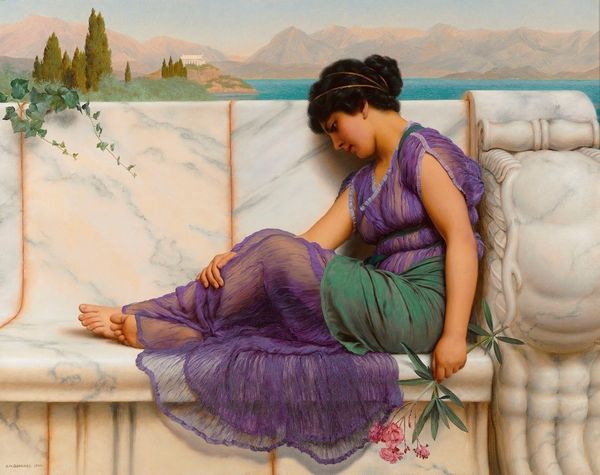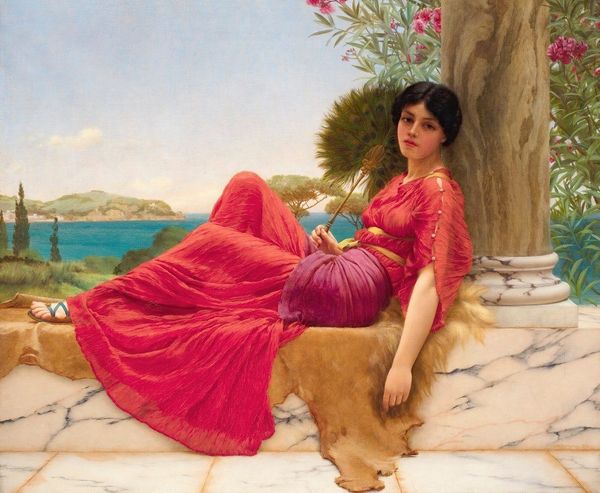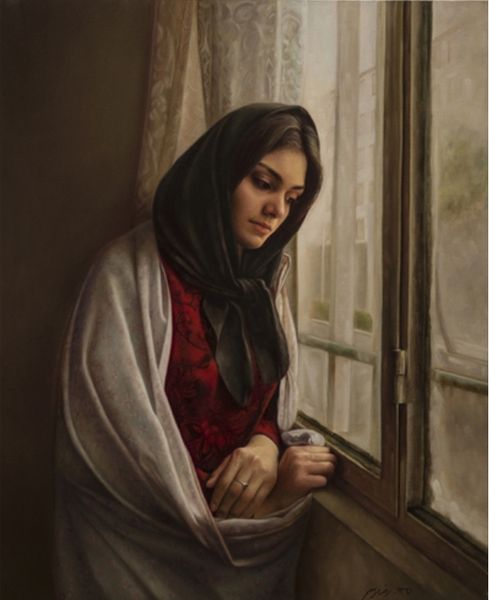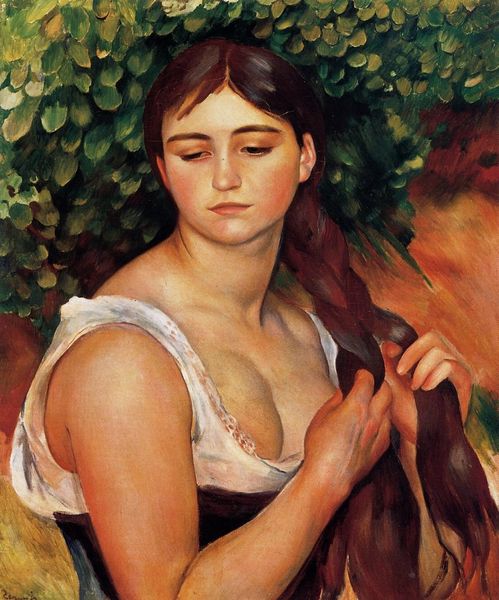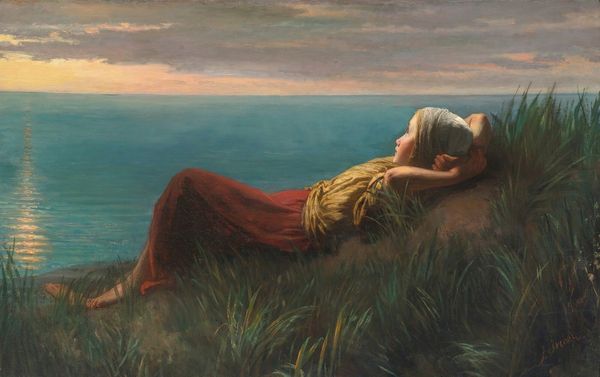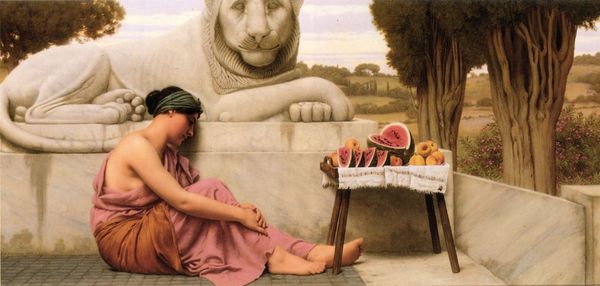
Copyright: Public Domain: Artvee
Editor: This is "Pyrallis" by John William Godward, painted in 1918 using oil paints. The figure, draped in delicate pink fabric, seems lost in contemplation. The soft landscape behind her, coupled with the dreamy light, gives the work a tranquil and melancholic feel. What is your interpretation? Curator: Well, let's consider Godward's place within the broader art world. He's often grouped with the later Pre-Raphaelites and is known for his idealized depictions of women, typically in classical settings. Notice how the setting here—a vaguely Greco-Roman landscape—is not a faithful representation of antiquity, but rather a stage for the display of beauty and an escape from modern industrial life. Editor: I see, so it's less about historical accuracy and more about creating an idealised vision? Curator: Exactly. The turn of the century was a period of significant social upheaval. Godward’s work, with its emphasis on beauty and idyllic settings, can be seen as a form of escapism. These paintings served as a retreat from the rapidly changing world, particularly appealing to a segment of society yearning for a more stable and "classical" past. Think about the public role of art: was it to reflect contemporary society, or to offer an alternative? Godward chose the latter. Editor: That’s fascinating. I hadn't considered the element of escapism. So, by focusing on these idealized women and settings, he was, in a way, making a statement about his dissatisfaction with modern society? Curator: Precisely. His art wasn't just about portraying pretty faces; it was about constructing a vision of an imagined, untroubled past. A vision that had immense social value and, crucially, was saleable in a market hungry for romanticism. Editor: This changes my perspective quite a bit! I was seeing the painting solely through the lens of its beauty, but there's so much more depth when we consider its cultural context. Curator: Indeed. And remember, how we view "beauty" itself is always shaped by cultural forces. Editor: Thank you. Now I know the importance of exploring those socio-political forces.
Comments
No comments
Be the first to comment and join the conversation on the ultimate creative platform.


